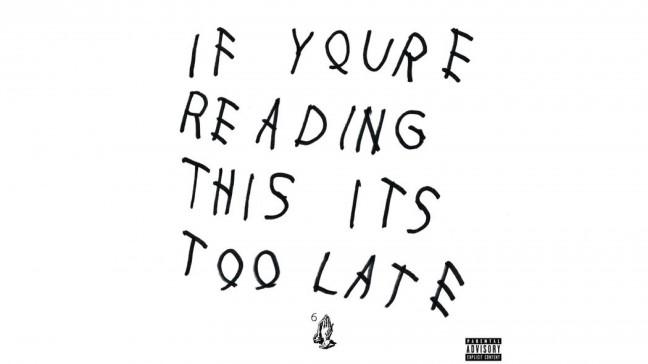In a fashion that seems to be the most nascent trend in hip-hop (and the music industry as a whole), Drake surprise-released a 17-song mixtape, If You’re Reading This It’s Too Late, last Thursday. Hitting record-sale levels that could rival Beyonce’s self-titled 2013 album, Too Late is garnering a lot of attention for being a mixtape. Then again, it is Drake, so the hype shouldn’t come as too much of a surprise.
But amid the large flood of drooling OVO (Drake’s label) fanboys and hip-hop aficionados, the hype train isn’t traveling the conventional route of musical appreciation; it’s circling the status of Cash Money Records. After Lil Wayne’s revelation of a $51 million lawsuit against Birdman, the Cash Money mogul, a torrent of alleged industry details have since popped up on various media outlets. Wayne reportedly said that he felt trapped by Birdman’s partial control of Cash Money, and has vehemently expressed interest in leaving his label of 20 years.
But along with the $51 million, a TMZ report says that Wayne intends to take Cash Money associated artists — Drake and Nicki Minaj — with him. “I aint trippin’/I got Barbie, I got Drake, too,” Wayne raps on “CoCo,” from his latest mixtape, Sorry 4 the Wait 2. As with any divorce, custody of children is usually one of the most difficult disputes to settle. Wayne wants Drake and Minaj, but there’s no doubt that Birdman will not take this lightly.
So where does this leave Drake?
Both he and Minaj have remained particularly silent on the matter, perhaps to avoid legal complications that may influence the Cash Money proceedings. But that doesn’t mean Drake’s opinion can’t be identified; Too Late builds a solid case that shows that Drake plans on leaving Cash Money.
Cue the rumor mill: Contractually bound to four records with Cash Money, Drake released Too Late for sale to free himself from any further obligations to the label, many rap forums have speculated.
Although legally an album, Too Late is a mixtape in character, and Drake makes that pretty clear. Through this understanding, there are certain expectations that are lowered; audio mixing, lyrical prowess and musical complexity won’t be as polished as an official album release. As such, this execution allows Drake to jam-pack Too Late with 17 gritty, introspective tracks that invite listeners into his world without making the world expect too much. However, Too Late the mixtape sounds better than many artists’ official LPs, which is a testament to the production quality and lyricism that Drake immerses himself.
Is it a fantastic release?
Not particularly. Many of Too Late’s tracks are forgettable and poorly mixed (compared to Drake’s prior releases). But when you release 17 songs on a mixtape, you’re bound to make songs that people will enjoy. It’s a regression-toward-the-mean philosophy that Drake probably considered when releasing Too Late.
Musically, Too Late features some of Drake’s darkest, most satisfying tracks he has released so far. Drake’s howl, “I was runnin’ through the six with my woes,” on “Know Yourself” is a narcotic thriller that features many quotable, Drake-esque lines. “You & the 6” is an engaging narrative dedicated to Drake’s mother that will be equally praised for its lyrical content and personal disclosures.
From a business standpoint, If You’re Reading This You’re Too Late may end up being the most pivotal moment in Drake’s career. If he does leave Cash Money, he has the opportunity to release highly anticipated Views from the 6 on his own terms, positioning OVO (maybe with Wayne and Minaj) to be its own record label free from the demands and restrictions of Cash Money and Birdman.
All of this is speculation and hearsay only adds to the allure of Too Late. I’m not sure Drake would have been able to pull this off had it not been for Cash Money’s conflict. And this could be all part of Drake’s calculated plan to launch a new era of his career. Of course, it all could be bogus. But if we indulge in the rumors for a brief moment, whether or not Too Late satisfies our expectations of Drake starts to become less important. Instead, it provides us with some hor d’oeurves and a musical modicum of what’s to come next.
3.8/5


